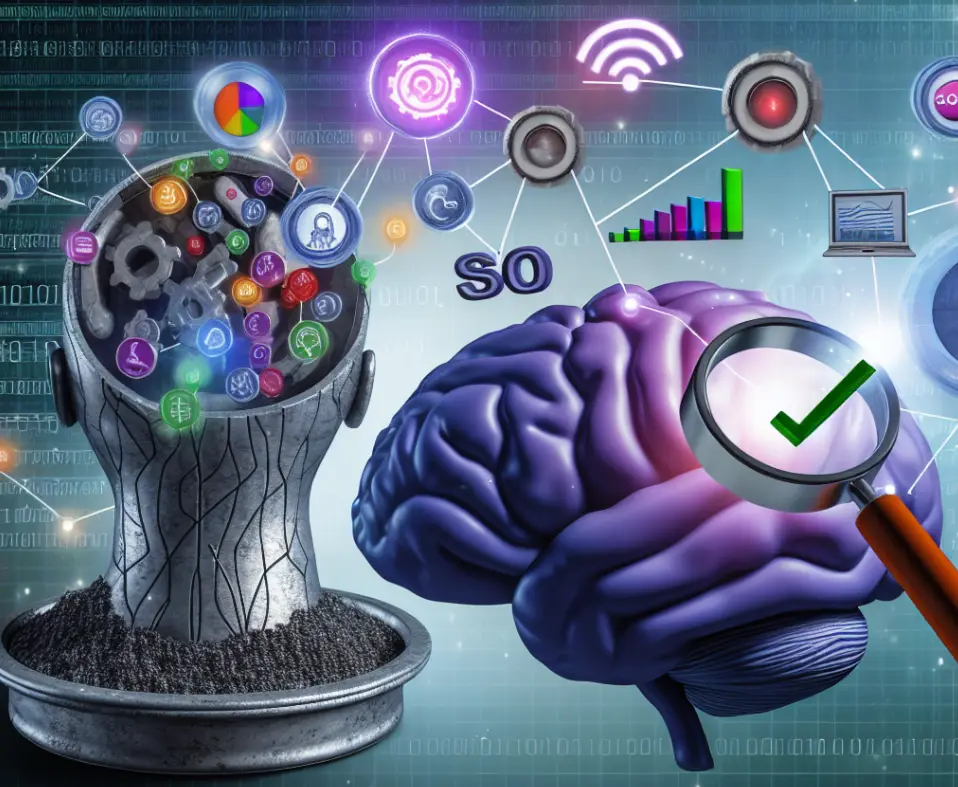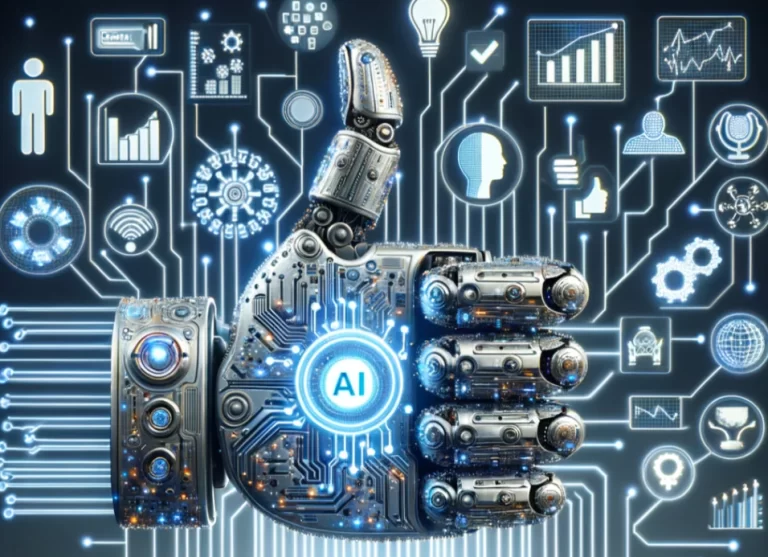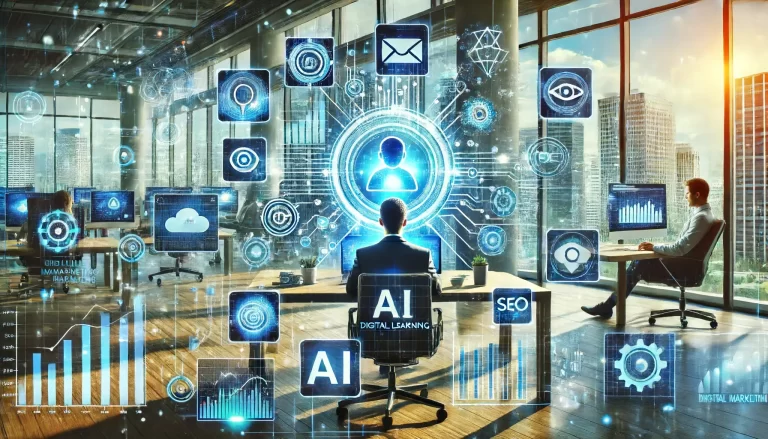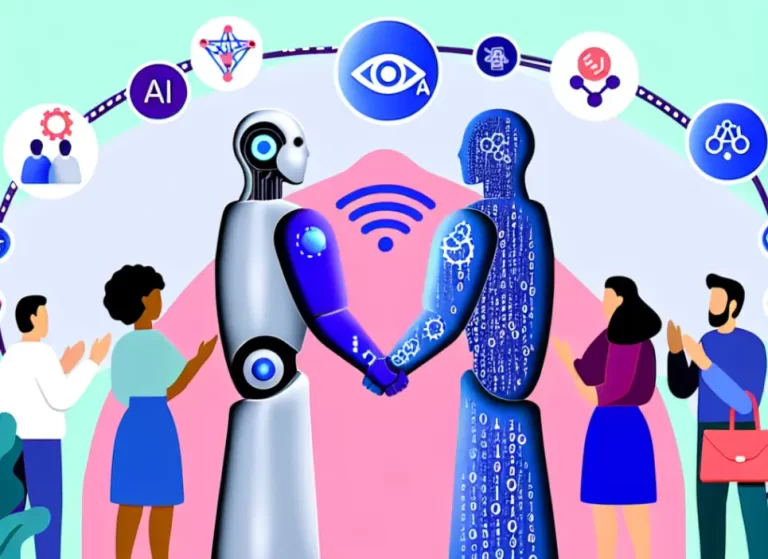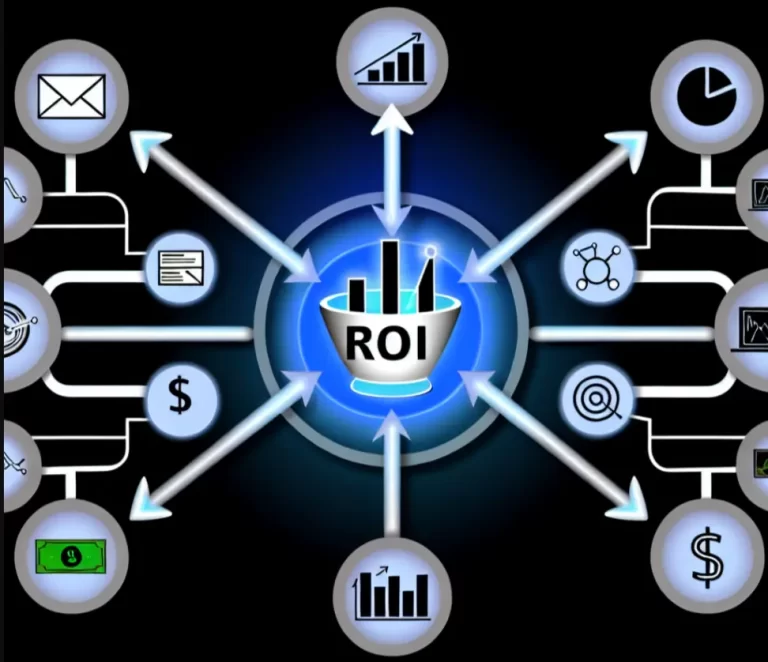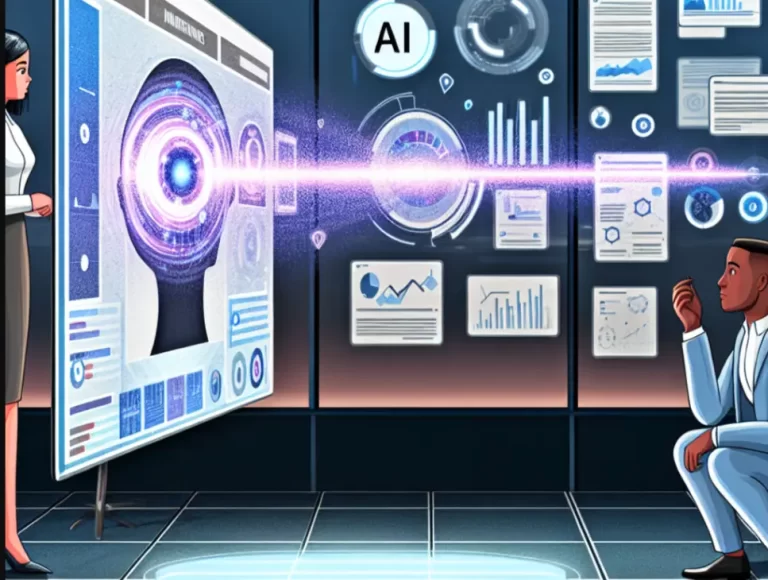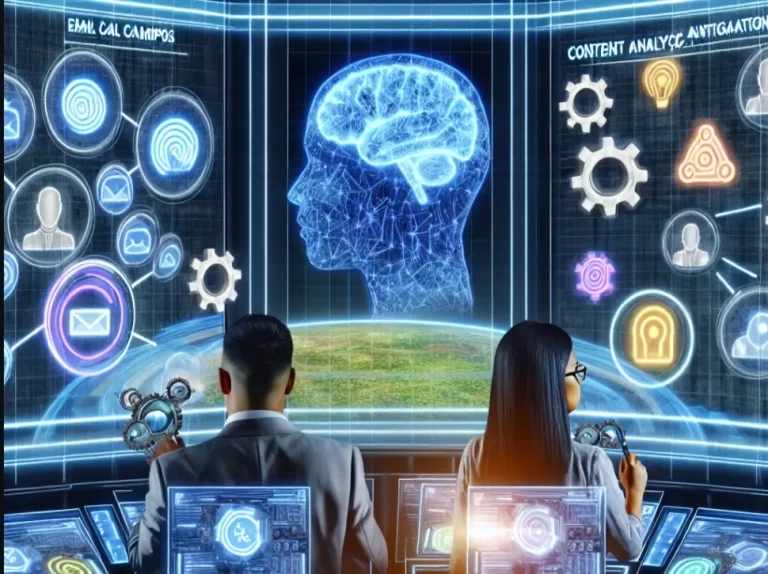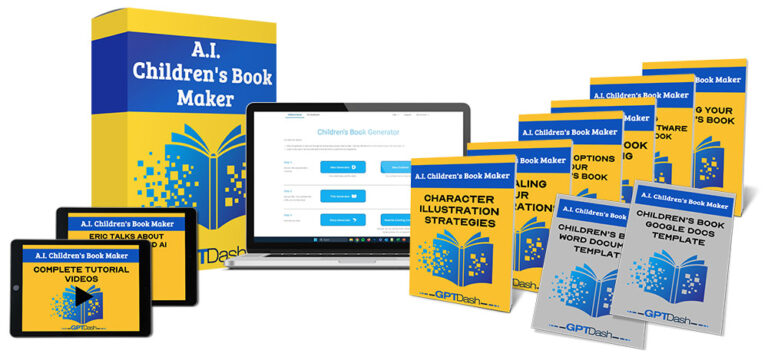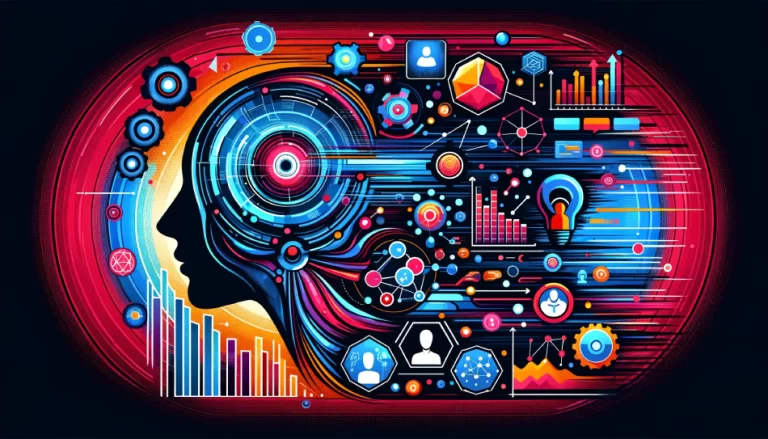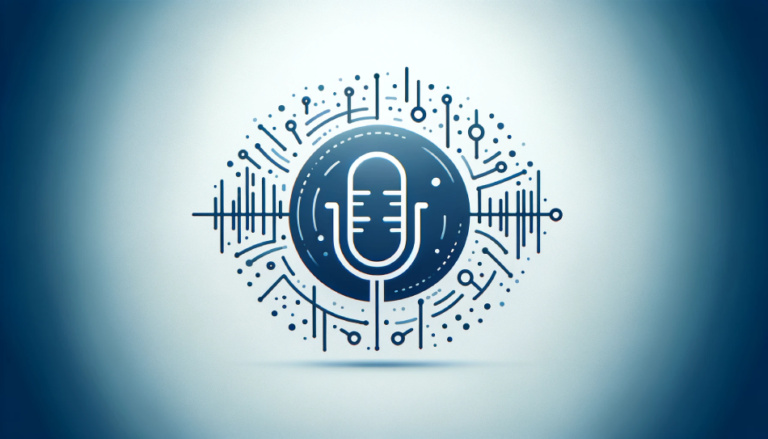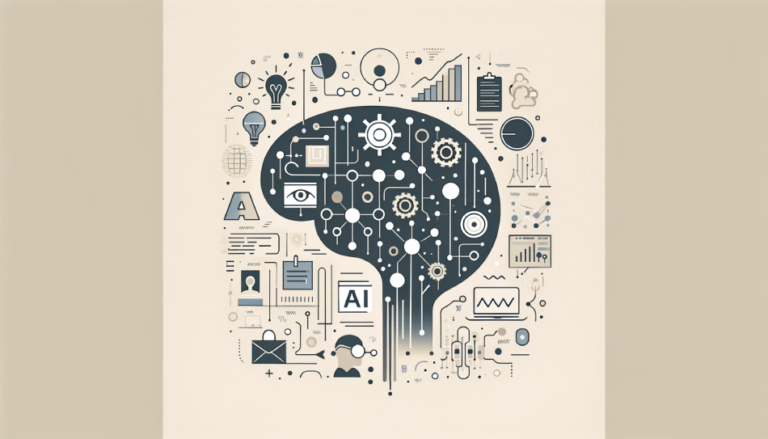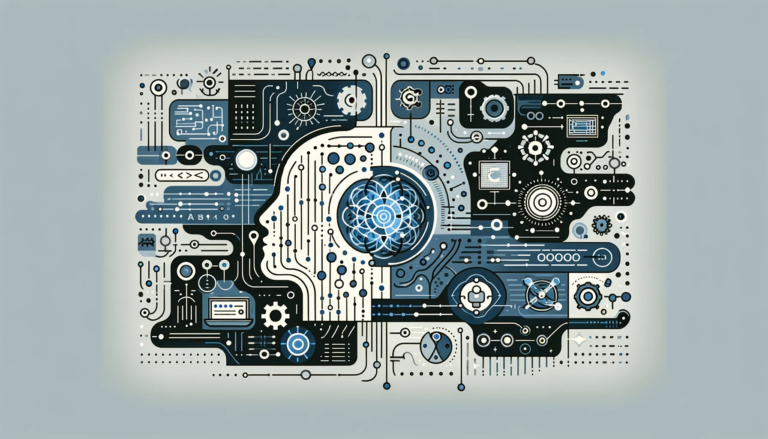How AI is Shaping the Future of Digital Marketing
Have you ever wondered how brands seem to know exactly what you want, even before you do? Well, it’s not magic—it’s Artificial Intelligence (AI) working behind the scenes in digital marketing. AI is revolutionizing the way businesses connect with customers, making marketing strategies smarter, more efficient, and incredibly effective. Let’s dive into the fascinating world of AI in digital marketing, shall we?
What is AI in Digital Marketing?
AI, or Artificial Intelligence, involves the use of algorithms and machine learning to analyze data, predict trends, and make decisions. In digital marketing, AI helps brands understand their audience better, automate tasks, and create personalized customer experiences. Essentially, it’s like having a super-smart assistant that never sleeps and constantly learns!
Why is AI a Big Deal in Digital Marketing?
There are a few reasons why AI is causing such a buzz in the marketing world:
- Efficiency: AI can process and analyze huge amounts of data at lightning speed, something that would take humans forever to accomplish.
- Personalization: AI can tailor content and offers to individual preferences, making customers feel valued and understood.
- Predictive Power: AI can forecast trends and customer behaviors, helping brands stay ahead of the curve.
- Cost-Effectiveness: By automating tasks, AI reduces the need for large marketing teams, saving time and money.
Real-World Examples of AI in Action
Still not convinced? Let’s look at some real-world examples of AI transforming digital marketing:
- Netflix: Ever noticed how Netflix always seems to recommend the perfect show for you? That’s AI at work, analyzing your viewing habits and suggesting content you’re likely to enjoy.
- Amazon: Amazon uses AI to recommend products based on your past purchases, search history, and even what’s trending among similar users.
- Spotify: Spotify’s Discover Weekly playlists are curated by AI, which analyzes your listening habits to introduce you to new music you’ll love.
Getting Started with AI in Your Marketing Strategy
If you’re thinking about integrating AI into your own marketing strategy, start small. Here are a few tips:
- Identify Pain Points: Determine which areas of your marketing could benefit from AI. Is it data analysis, customer segmentation, or content creation?
- Choose the Right Tools: There are plenty of AI tools out there, from chatbots to analytics platforms. Choose one that aligns with your goals and budget.
- Test and Learn: Start with a pilot project to see how AI impacts your marketing efforts. Analyze the results and tweak your approach as needed.
So, there you have it! AI is not just a buzzword; it’s a powerful tool that can transform your digital marketing efforts. By harnessing the capabilities of AI, you can create more personalized, efficient, and effective marketing strategies that truly resonate with your audience. Ready to take the plunge? The world of AI in digital marketing is waiting for you!
Personalization and Customer Experience
Let’s chat about something super exciting happening in the world of digital marketing—AI-powered personalization. If you’ve ever marveled at how brands seem to know just what you want, even before you do, you’ve already experienced the magic of AI in action. 🎩✨
Why Personalization Matters
First things first, why is personalization such a big deal? Well, in today’s fast-paced digital world, customers are bombarded with information from every direction. Personalized experiences cut through the noise and make people feel seen and appreciated. It’s like walking into your favorite coffee shop and the barista already knows your order. Sweet, right?
Personalization isn’t just a nice-to-have; it’s a must. According to a Salesforce report, 84% of customers say being treated like a person, not a number, is very important to winning their business. So, how do we achieve this at scale? Enter AI.
How AI Personalizes the Customer Journey
AI can analyze mountains of data faster than you can say “data overload.” This means it can understand customer behaviors, preferences, and needs with pinpoint accuracy. Here are some ways AI is transforming personalization:
- Dynamic Content Recommendations: Ever wonder how Netflix knows what you feel like binge-watching next? AI examines your viewing history and suggests content tailored to your tastes. Brands can do the same with product recommendations, making shopping a breeze.
- Email Personalization: We’ve all received those generic, boring emails that go straight to the trash. AI changes the game by crafting personalized email content based on user behavior and preferences, increasing engagement rates.
- Customized Landing Pages: Imagine visiting a website where everything—from the imagery to the product suggestions—feels like it’s designed just for you. AI can create dynamic landing pages that adapt in real-time to each visitor’s interests.
Real-Time Personalization: The Cherry on Top
One of the coolest aspects of AI-driven personalization is its ability to deliver real-time experiences. For instance, AI can analyze your actions as you browse an e-commerce site and adjust what you see on the fly. It’s like having a personal shopping assistant guiding you to what you’ll love most.
Real-time personalization doesn’t just enhance the customer experience; it also drives conversions. According to Evergage, 88% of marketers report measurable improvements due to real-time personalization, with 53% seeing a lift greater than 10% in conversion rates.
The Human Touch
Now, you might be thinking, “This all sounds amazing, but what about the human touch?” Excellent question! While AI can handle the heavy lifting of data analysis and real-time adjustments, the human element is still crucial. AI provides the insights, but it’s up to marketers to use this information creatively and empathetically to connect with customers in meaningful ways.
In conclusion, AI-driven personalization is revolutionizing the customer experience. By leveraging AI’s capabilities, brands can create highly personalized and engaging experiences that not only meet customer expectations but exceed them. And that’s how you build loyalty and turn casual shoppers into lifelong fans. 🌟
So, the next time you’re wowed by a brand that just *gets* you, remember that there’s some powerful AI working behind the scenes to make it happen. Cool, huh?
AI-Powered Content Creation
Let’s dive into something super exciting: AI-powered content creation. If you’ve ever felt like you’re stuck in a never-ending cycle of brainstorming, drafting, and editing, you’re going to love what AI can do for you.
What Is AI-Powered Content Creation?
Alright, let’s break it down. AI-powered content creation involves using artificial intelligence tools to generate, suggest, or enhance content. This can range from writing blog posts and articles to creating social media captions and even producing video scripts. The idea is to leverage AI to make the content creation process faster, more efficient, and potentially more engaging.
How Does It Work?
Imagine having a virtual assistant that never sleeps, never complains, and is always there to help you. These AI tools use advanced algorithms and natural language processing (NLP) to understand context, tone, and relevance. Here are some key features:
- Text Generation: Tools like GPT-3 can generate human-like text based on a prompt you provide. Need a catchy headline or a few paragraphs on a specific topic? Done!
- Content Optimization: AI can analyze your existing content and suggest improvements for SEO, readability, and engagement. It can even recommend keywords or phrases to include.
- Topic Suggestions: Struggling with writer’s block? AI can analyze trends and data to suggest relevant topics that your audience will love.
Benefits of AI-Powered Content Creation
- Time-Saving: One of the biggest advantages is the time you save. Imagine cutting down the hours spent on drafting and editing to just a few minutes.
- Consistency: AI tools ensure that your content maintains a consistent tone and style, which is crucial for brand identity.
- Data-Driven: These tools can analyze vast amounts of data to provide insights into what type of content works best for your audience.
- Cost-Effective: Why hire a large team of writers when you can achieve similar results with AI assistance? It’s a cost-effective solution for many businesses.
Real-World Examples
Let’s take a look at some real-world examples to see how companies are using AI in their content creation strategies:
- The Washington Post: They use an AI tool called “Heliograf” to generate news reports on local sports and election results. This allows their journalists to focus on more in-depth reporting.
- Forbes: Forbes employs an AI tool named “Bertie” to assist writers by suggesting topics, headlines, and even images that match their articles.
- HubSpot: HubSpot’s content strategy tool uses AI to recommend topics, titles, and even the best time to publish content for maximum engagement.
Tips for Getting Started
Ready to dip your toes into the world of AI-powered content creation? Here are a few tips to get you started:
- Research Tools: There are plenty of AI tools out there like Jasper, Copy.ai, and Writesonic. Take some time to research and find the one that best fits your needs.
- Start Small: You don’t need to overhaul your entire content strategy overnight. Start small by using AI tools for specific tasks like social media posts or content optimization.
- Monitor and Adapt: Keep an eye on the performance of the AI-generated content. Use analytics to see what works and what doesn’t, and adapt your strategy accordingly.
There you have it! AI-powered content creation is not just a futuristic concept; it’s here, and it’s transforming the way we create content. Whether you’re a small business owner or a seasoned marketer, leveraging AI can give you a competitive edge and make your life a whole lot easier.
Enhanced Data Analytics and Insights
Let’s dive into one of the most exciting aspects of AI in digital marketing: enhanced data analytics and insights. You might be wondering, “What’s so special about data analytics with AI?” Well, buckle up, because we’re about to take a thrilling ride through the world of data-driven decisions made smarter and faster with AI.
Why Enhanced Data Analytics Matters
First things first, let’s talk about why enhanced data analytics is crucial. In today’s digital age, data is king. Businesses are swimming in a sea of data, but it’s not just about having data; it’s about making sense of it. Traditional data analysis can be time-consuming and requires a lot of human effort. Enter AI, your new best friend in the data department.
AI Takes Data Crunching to a Whole New Level
AI-powered tools can process vast amounts of data at lightning speed. Imagine having a super-smart assistant who never sleeps, tirelessly analyzing your data 24/7. This isn’t just a time-saver; it’s a game-changer. With AI, you can:
- Identify Patterns and Trends: AI algorithms excel at spotting patterns and trends that might be invisible to the human eye. This means you can uncover hidden insights and make data-driven decisions with confidence.
- Improve Accuracy: Human error is inevitable, but AI can significantly reduce inaccuracies. By automating data analysis, you get more reliable results.
- Real-Time Analysis: Forget waiting for monthly reports. AI provides real-time analysis, allowing you to react swiftly to changes in the market.
Practical Applications of AI in Data Analytics
Now that we’ve established why enhanced data analytics is essential, let’s explore some practical applications. Here are a few ways AI is transforming the way marketers use data:
- Customer Segmentation: AI can analyze customer data to create highly detailed segments. This means you can tailor your marketing efforts to specific groups, improving engagement and conversion rates.
- Predictive Analytics: Want to know what your customers will do next? AI can predict future behaviors based on historical data. This helps you anticipate needs and stay ahead of the competition.
- Performance Optimization: AI can continuously analyze your marketing campaigns, identifying what works and what doesn’t. This allows for ongoing optimization, ensuring you get the best ROI.
- Sentiment Analysis: Understanding how customers feel about your brand is vital. AI can analyze social media posts, reviews, and other content to gauge sentiment, giving you valuable insights into customer perceptions.
Getting Started with AI-Driven Analytics
Ready to jump on the AI bandwagon? Here are a few tips to get started:
- Choose the Right Tools: There are plenty of AI-powered analytics tools out there. Do your research and select one that fits your needs and budget.
- Integrate with Existing Systems: Ensure your AI tools can seamlessly integrate with your current systems, such as your CRM and marketing platforms.
- Invest in Training: AI is powerful, but you need to know how to use it effectively. Invest in training for your team to maximize the benefits.
In conclusion, AI-driven data analytics is not just a trend; it’s a revolution. By harnessing the power of AI, you can transform your data into actionable insights, making smarter, faster, and more accurate decisions. So, what are you waiting for? Dive into the world of AI and watch your marketing efforts soar!
Chatbots and Customer Support Automation
Ever found yourself frustrated while waiting on hold for customer support? We’ve all been there. Thankfully, the rise of AI-powered chatbots is changing the game in customer support, making those long waits a thing of the past. Let’s dive into how chatbots and customer support automation are revolutionizing the way businesses interact with their customers.
Why Chatbots Are a Game-Changer
Chatbots are essentially virtual assistants that can handle a multitude of tasks—from answering frequently asked questions to processing returns and even guiding customers through complex issues. Here’s why they’re making waves:
- 24/7 Availability: Unlike human agents, chatbots don’t sleep. They can provide round-the-clock support, ensuring your customers never feel stranded.
- Instant Responses: In today’s fast-paced world, nobody likes to wait. Chatbots provide immediate answers, enhancing customer satisfaction.
- Cost-Effective: Chatbots can handle multiple queries simultaneously, which means you can save on the costs associated with hiring and training a large support team.
Personalized Customer Interactions
One of the most impressive features of modern chatbots is their ability to offer personalized interactions. Using Natural Language Processing (NLP) and Machine Learning, these bots can understand and respond in a way that’s tailored to the individual customer. This personalized touch can significantly enhance the customer experience. For example:
- Recognizing Repeat Customers: Chatbots can remember past interactions, making it easier to offer solutions that are relevant and timely.
- Adaptive Learning: The more a chatbot interacts with users, the better it becomes at providing accurate responses, thanks to its ability to learn from each interaction.
Integrating Chatbots into Your Business
Curious about how to get started with chatbots? Here are some steps to consider:
- Identify Key Areas: Determine which aspects of your customer support can be automated. Start small and gradually expand the chatbot’s responsibilities.
- Choose the Right Platform: There are numerous AI chatbot platforms available, such as Dialogflow, IBM Watson, and Microsoft Bot Framework. Assess their features and choose one that aligns with your business needs.
- Train Your Bot: Provide your chatbot with a comprehensive set of FAQs and integrate it with your existing knowledge base. The more information it has, the more effective it will be.
- Monitor and Optimize: Continuously monitor your chatbot’s performance and make adjustments as needed. Use analytics to identify areas for improvement and ensure it evolves with your customers’ needs.
The Future of Customer Support Automation
The future looks bright for customer support automation. As AI technology continues to advance, chatbots will become even more sophisticated, capable of handling complex queries and providing a seamless customer experience. Imagine a world where your customers can get instant, accurate support at any time—it’s not just a dream, it’s right around the corner.
So, why not explore the potential of chatbots for your business? With the right approach, you can enhance customer satisfaction, streamline operations, and save on costs. It’s a win-win situation!
Predictive Analytics for Marketing Strategies
Have you ever wished you could see into the future, especially when it comes to making the best marketing decisions? Well, guess what? Predictive analytics is your new best friend in the digital marketing world. Let’s dive into how predictive analytics can supercharge your marketing strategy and make your job a whole lot easier (and more fun)!
What is Predictive Analytics, Anyway?
At its core, predictive analytics involves using data, statistical algorithms, and machine learning techniques to identify the likelihood of future outcomes based on historical data. It’s like having a crystal ball that’s powered by data! Instead of guessing what might work, you can use hard evidence and trends to guide your decisions.
How Can It Help Your Marketing Strategy?
Great question! Here are a few key ways predictive analytics can transform your marketing efforts:
- Targeted Campaigns: By analyzing past customer behavior and preferences, predictive analytics can help you tailor your campaigns to reach the right people with the right message at the right time. No more shooting in the dark!
- Customer Segmentation: It enables you to segment your audience more effectively. You can identify which customers are more likely to engage with certain products or services, and create personalized marketing strategies for each segment.
- Optimizing Marketing Spend: Predictive analytics helps you allocate your budget more efficiently. By understanding which channels and tactics yield the best returns, you can invest your resources where they’ll have the most impact.
- Churn Prediction: It’s not just about acquiring new customers, but also about retaining the ones you have. Predictive analytics can help you identify which customers are at risk of leaving and allow you to take proactive measures to keep them engaged.
Getting Started with Predictive Analytics
Okay, so predictive analytics sounds awesome, but how do you actually get started? Here are some steps to set you on the right path:
- Gather Your Data: The first step is to collect and organize your data. This includes customer demographics, transaction history, website behavior, social media interactions, and more. The richer your data, the better your predictions will be.
- Choose the Right Tools: There are plenty of analytics tools out there, from Google Analytics to more advanced platforms like SAS, IBM Watson, or Salesforce Einstein. Choose one that fits your needs and budget.
- Build Your Models: Using statistical techniques and machine learning algorithms, start building models that can analyze your data and make predictions. This might require some specialized skills, so you might consider hiring a data scientist or working with a consulting firm.
- Test and Refine: Predictive models are not set in stone. Continuously test and refine your models with new data to ensure they remain accurate and effective.
- Implement and Monitor: Once you’re confident in your predictions, start applying them to your marketing strategies. Monitor the results closely and be ready to make adjustments as needed.
Final Thoughts
Predictive analytics is a game-changer for modern marketers. It takes the guesswork out of the equation and allows you to make data-driven decisions that can significantly boost your marketing performance. So, why not give it a shot? Your future self (and your marketing budget) will thank you!
AI in Social Media and Influencer Marketing
Hey there, social media mavens! Let’s dive into how artificial intelligence (AI) is shaking things up in the realms of social media and influencer marketing. It’s like having a secret weapon that can take your campaigns from “meh” to “WOW!” Let’s explore how AI can transform your digital marketing game.
Finding the Right Influencers
Gone are the days of manually sifting through endless profiles to find that perfect influencer. AI can now scan social media profiles, analyze engagement metrics, and even evaluate the authenticity of followers. This means you get to work with influencers who genuinely resonate with your target audience. Pretty cool, right?
- Algorithmic Matching: AI algorithms can match brands with influencers based on a myriad of factors like interests, audience demographics, and engagement rates.
- Fraud Detection: AI tools can identify fake followers or bot-driven accounts, ensuring your marketing dollars are well spent.
Optimizing Content Strategy
AI can also help you figure out what type of content will perform best with your audience. Imagine having a crystal ball that tells you what your followers want to see and when they want to see it!
- Sentiment Analysis: AI can analyze comments, likes, and shares to gauge the sentiment around different types of content.
- Engagement Prediction: Using past data, AI can predict which posts are likely to garner the most engagement.
Enhanced Personalization
Personalization isn’t just a buzzword; it’s a necessity. AI can help you tailor your social media campaigns to individual user preferences and behaviors, making your audience feel like you truly “get” them.
- Targeted Ads: AI can serve ads that are highly relevant to each user’s interests and previous interactions with your brand.
- Dynamic Content: Some AI tools can even create dynamic content that changes based on user interactions in real-time.
Performance Tracking and Analytics
One of the most powerful aspects of AI in social media marketing is its ability to analyze vast amounts of data quickly and accurately. This gives you real-time insights into how your campaigns are performing and where you can make improvements.
- Real-Time Monitoring: AI algorithms can monitor your social media performance in real-time, providing instant feedback.
- Trend Analysis: AI can identify emerging trends and shifts in audience behavior, allowing you to adapt your strategy accordingly.
Improving ROI
Ultimately, all these capabilities lead to one significant benefit: a better return on investment (ROI). By leveraging AI, you can ensure that your social media and influencer marketing efforts are effective, efficient, and, most importantly, impactful.
- Cost Efficiency: Automated tools reduce the time and money spent on manual tasks.
- Better Campaigns: Data-driven insights lead to more effective campaigns and higher engagement rates.
So, whether you’re a brand looking to expand your reach or an influencer aiming to optimize your collaborations, AI offers the tools to elevate your social media and influencer marketing strategies. Ready to harness the power of AI? Your audience and your bottom line will thank you!

